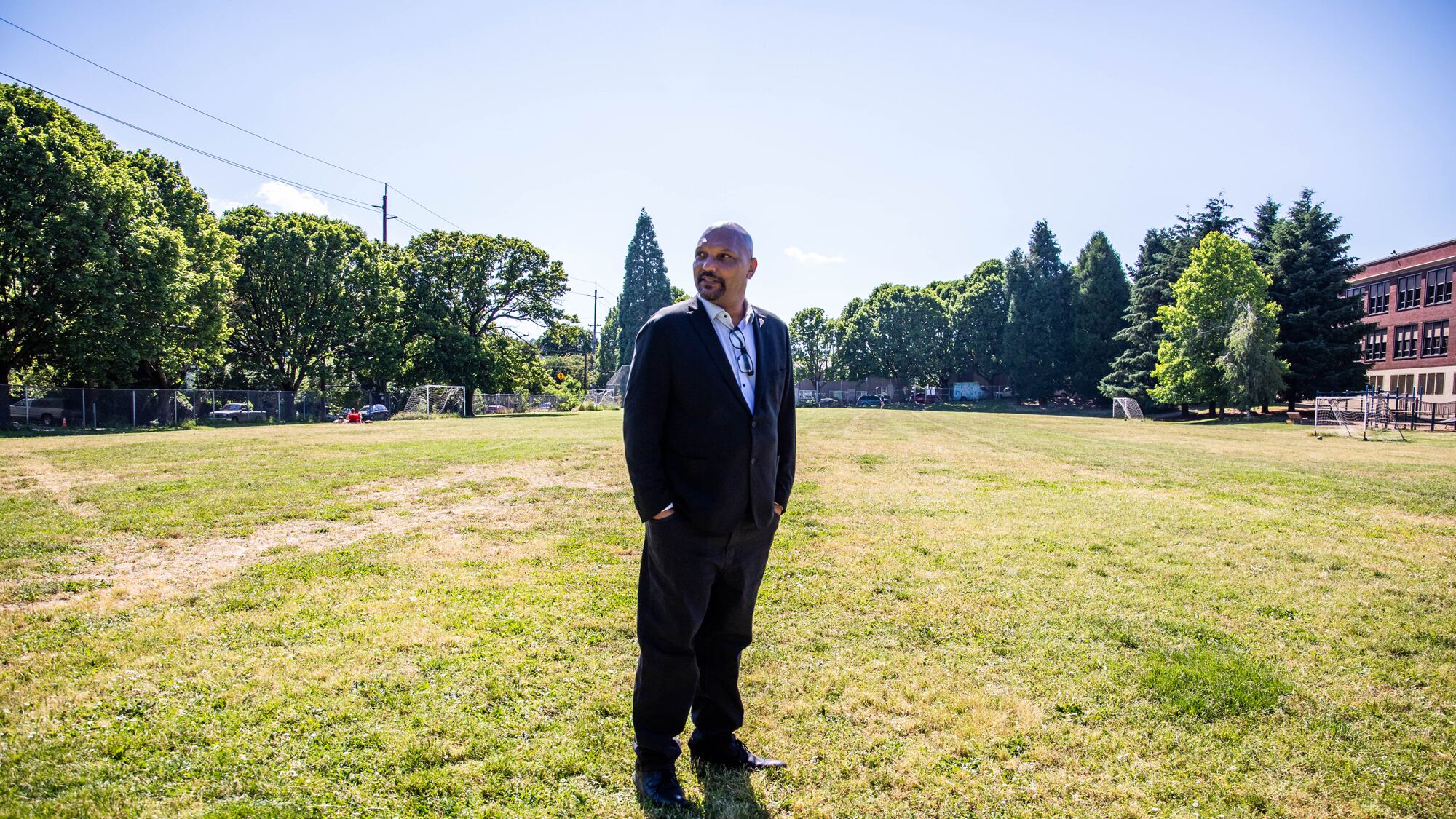For the past year, Portland City Commissioner Mingus Mapps has struggled to gain traction in a mayoral race that’s seen two of his colleagues on the Portland City Council, Carmen Rubio and Rene Gonzalez, rake in endorsements and hundreds of thousands of dollars more in fundraising than he has.
By all accounts, Mapps had accepted he was defeated. At one point this summer, he even owed $17,000 to campaign vendors. He’s since paid off those debts. Still, the money spigot by this fall had run all but dry for the candidate once beloved by business owners.
But Mapps’ beleaguered campaign over the past three weeks has spied and seized upon an unforeseen window of opportunity: negative headlines about Gonzalez and Rubio, who have both been bogged down by news of their flagrant driving histories.
Earlier this month The Oregonian reported that Rubio had racked up 150 parking and traffic citations and had her license suspended six times, and a WW story soon after reported that Gonzalez also had a history (though certainly less dramatic than Rubio’s) of speeding tickets and license suspensions.
Since then, Mapps’ and his campaign have been on the offense. In a shift from his previous campaign rhetoric, Mapps is re-centering his experience as a Black man in his campaign. (He’s only the third Black man to serve on the City Council.) In recent weeks, he’s repeatedly brought up race in campaign emails to supporters and in social media posts.
Following reporting on Rubio’s alarming driving history and Gonzalez’s more tempered but still imperfect driving record, Mapps wrote in a Sept. 10 campaign email that as a Black man, he doesn’t have the same luxury of flouting traffic laws as his opponents.
“This isn’t just about traffic tickets. It’s about privilege. My opponents’ actions show they feel that they are above the law, a luxury most Portlanders, especially those of us from marginalized communities, don’t have,” Mapps wrote. “As a Black man, I don’t get to flout the rules. I live by them, and I’ll make sure our leaders do too. If I had over 150 violations in recent years, not only would I not be on the City Council today, I would be in jail.”
Then in a Sept. 22 social media post, Mapps opined on why he wasn’t invited to The Oregonian’s endorsement interview with mayoral candidates. He called it “deeply disturbing news.”
“I’ve served Portland with honor for nearly four years on the City Council. I’m the fourth African American to do so in our city’s history and hold a PhD in Government from Cornell. Despite that, The Oregonian won’t even consider my candidacy,” Mapps wrote. “There’s no scandals disqualifying me, like my top two opponents. And character clearly isn’t the issue—my opponent Carmen Rubio, who has racked up over 150 parking tickets, is being considered. Rene Gonzalez, also has traffic violations, questionable use of public funds, AND lied about a black woman attacking him. Yet these are your ‘chosen,’ candidates.”
Mapps added, “Let’s be honest: Portland’s power brokers don’t want me to be your next mayor. I’m not part of their establishment. I’m not rich. I cannot be bought. And I won’t be intimidated by undemocratic tactics.”
Two years ago, Mapps was a darling of the business community and downtown developers, who have come together in recent election cycles to pour tens of thousands of dollars into boosting business-friendly candidates. But over the past two years, Mapps’ support from the business community, especially the Portland Metro Chamber, has all but vanished.
In a Thursday afternoon endorsement interview in WW’s office, Mapps said that he believes it’s because he’s countered the Metro Chamber on two substantial policies over the past year: their desire to strike eco-roof requirements and bird-glazing glass requirements for new developments, and their lobbying to scrap plans for an infrastructure project (including a bike lane) along Southwest 4th Avenue.
In the same interview, Mapps reiterated that, as a Black man, he’s under more scrutiny than his two top competitors.
Watch the clip below.
Mapps’ rhetoric has rankled Gonzalez.
In a Sept. 24 post on X, Mapps wrote, “Rene Gonzalez’s mayoral campaign recently reached out, upset about one of my tweets. Honestly, I was confused, because everything in it was true. After reviewing the tweet, I’m guessing this sentence hit a nerve: ‘Rene Gonzalez has traffic violations, questionable use of public funds, AND lied about a Black woman attacking him.’”
(The incident Mapps is referring to: Gonzalez in January called the cops on a woman on a TriMet bus that Gonzalez claimed on social media had “accosted” him. He said he would not be riding public transportation until it felt safer. Video footage of the incident, obtained by The Oregonian in February, shows that the woman, who was Black, briefly brushed up against Gonzalez as she walked past him.)
Mapps continued in his Sept. 24 post on X, “The traffic violations and questionable use of public funds? Those are just facts. So, is the real issue my claim that Rene ‘lied about a Black woman attacking him’? Well, Trimet has video footage. You can watch it for yourself and decide: Was Commissioner Gonzalez really ‘accosted by a woman on the train’?
In our Thursday interview, WW asked about Mapps’ statement. You can watch Mapps and Gonzalez spar about it below. Gonzalez characterized Mapps’ accusation as “outrageous.”
Correction: A prior version of this story stated that Mapps defied the Portland Metro Chamber on an infrastructure project along Southwest Broadway. The project in question was actually along Southwest 4th Ave. WW regrets the error.

